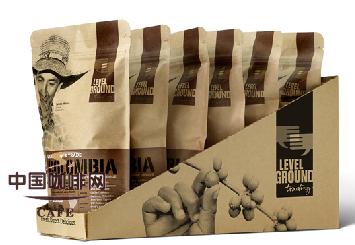Coffee Culture: a documentary about Fair Trade Coffee

To understand what "Fair Trade Coffee" means, watch this documentary.
Black Gold (2006) is a documentary about Ethiopian coffee growers struggling to cope with exploitation by Western multinational corporations. The film's narrative technique is very simple, and the camera constantly switches between two worlds that are very different: the elegantly dressed Italians "start a good day with a cup of coffee in the morning", while the coffee growers are shirtless and live in poor houses; at the coffee market in New York and London, no one pays attention to the grower's question "Can you raise the price of coffee to 5 birr per kilogram (about 0.6 US dollars)?" Let's have money to build schools for our children "; the female manager of the world's first Starbucks in Seattle is very proud of the coffee culture represented by Starbucks, unaware that Ethiopian women work 8 hours a day for less than $0.50; representatives of major economic powers at the WTO global conference negotiate behind closed doors the most favorable trade strategy for them. In order to feed their families, growers have to cut down coffee fields and plant Chat(a hallucinogenic drug) at a higher price.
One of the most memorable scenes for me was when a grower said,"We don't need Western help, and we don't want our children to see us receiving handouts." We have coffee, and we can live on our own labour, if we can be given a fair price." But the closing credits make it clear that kraft, nestle, procter & gamble and saralee--the world's four largest multinational coffee companies--and starbucks declined invitations to watch the film.
It's a heart-wrenching film to watch, because you have to accept the fact that every cup of coffee you drink, knowingly or unknowingly, increases the exploitation of African and South American coffee growers.
Simply put, organizing coffee growers to work directly with independent coffee merchants to make prices transparent and fair is Fairtrade Coffee. After the film came out, it quickly received great response internationally. Starbucks has been forced to say it will use Fairtrade coffee beans globally by 2015. But at home, we still can't get Fairtrade coffee in Starbucks for a while.
So what can we do to reduce the unfair coffee trade? Try to buy coffee with Fairtrade labels, such as British brands Percol or Café Direct; if you frequent Hong Kong, look out for shops that use Fairtrade beans, which are quite common in Hong Kong; or just go to Tudou and watch the documentary in its entirety.
To act in support of fair trade requires money (fair trade coffee is more expensive) and patience (not necessarily better). Can we not relieve our inner guilt when we take a cup of coffee in this way?
Important Notice :
前街咖啡 FrontStreet Coffee has moved to new addredd:
FrontStreet Coffee Address: 315,Donghua East Road,GuangZhou
Tel:020 38364473
- Prev

The skills of evaluating strong Italian Coffee with Common Coffee
Like Italians' enthusiasm for coffee, Chinese people also have a deep affection for tea culture. Every May and June is the best time for the annual Tieguanyin spring tea to be put on the market. Tieguanyin tea is the best of oolong tea, through the combination of Tieguanyin tea varieties and processing technology, but also form a unique flavor concept of rhyme. This generally refers to tea in the process of tasting tea.
- Next

Common sense of Coffee Culture Viennese Cafe Culture
Exotic style: Viennese coffee culture landed in Shenzhen's long history of Viennese coffee shop culture, can also be fully experienced in Shenzhen. Recently, Shenzhen Fuyuan Crown Holiday Suites launched a new catering highlight Vienna Coffee grand opening. Mr. Tang Mowei, Director of the Hotel Food and Beverage Department from Vienna, Austria, introduced: for centuries, famous musicians in history
Related
- How did the Salvadoran coffee industry develop in Central America?
- What exactly does the golden cup extraction of coffee mean?
- The Origin of Coffee flower
- [2023 Starbucks World Earth Day] there are more meaningful things besides free Starbucks coffee!
- What kind of coffee is there in Spain? 9 Flavors of Spanish Coffee
- Aromatic African coffee| Kenya's coffee culture and historical production area
- Liberica Coffee Bean knowledge: the characteristics of Liberian Coffee beans of the three original species of Coffee beans
- The origin and formula of Spanish latte introduces the taste characteristics of Bombon coffee in Valencia, Spain.
- How to adjust the solution of over-extracted coffee
- What is the tasting period of coffee beans? What is the period of coffee and beans? How should coffee wake up and raise beans?

